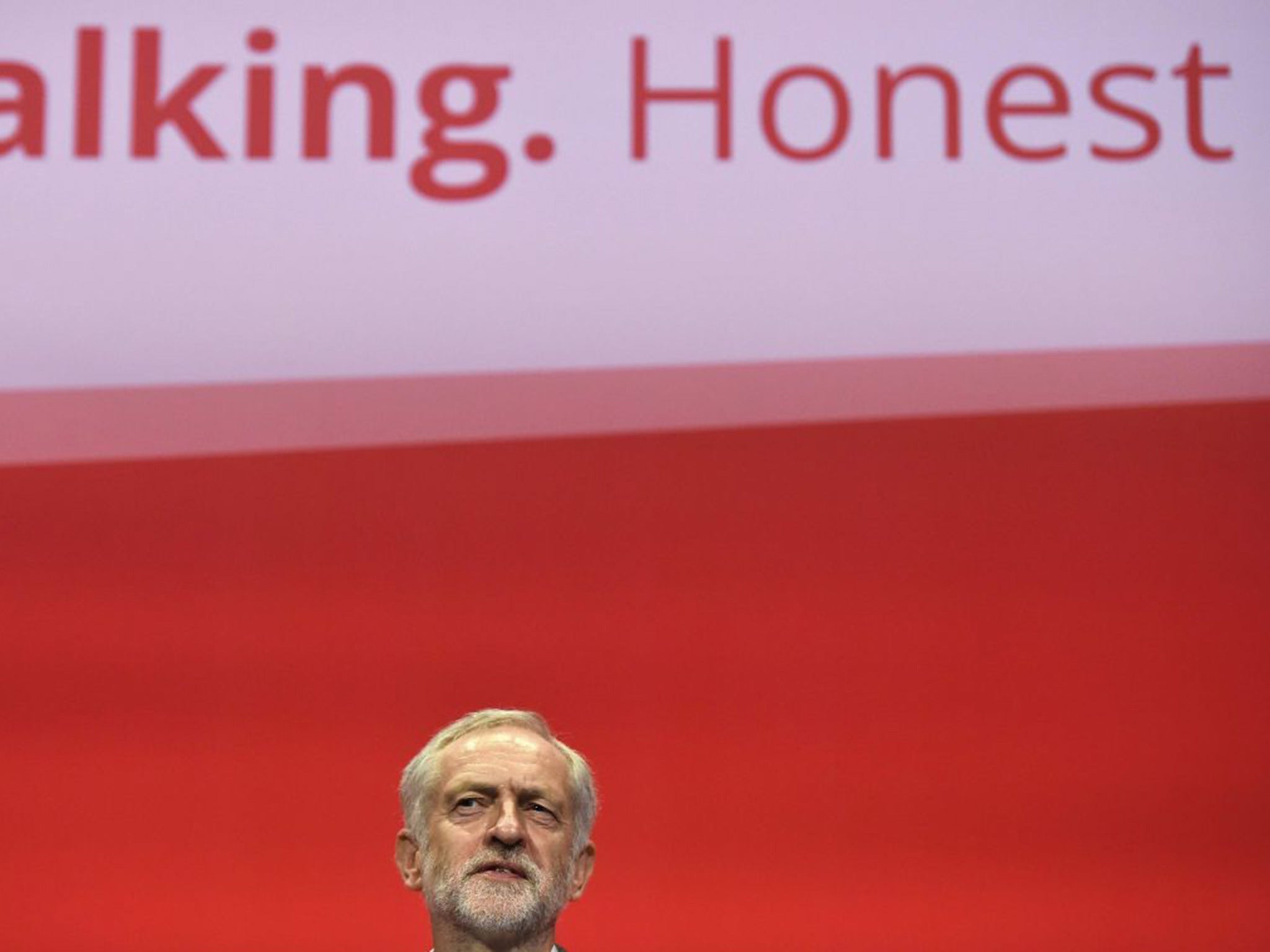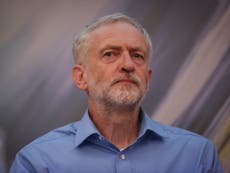Jeremy Corbyn’s Labour isn’t working: The leader is weak, the party is divided, and its structures are inadequate
Either Mr Corbyn will perform an internal coup, or he will eventually step down or be deposed

Such are the complexities of war in Syria that only the most hawkish members of the Labour party, or the public, will feel blithely certain that Britain is right to join the fray. This newspaper supports the intervention. But caveats abound. It must be recognised that British Tornado jets will not change the course of the fight against Isis. Britain’s assumption of a full role in the coalition is justified primarily by the added muscle it will give to this country’s diplomatic efforts, providing a counterweight, alongside the US, to the influence of Russia and Iran. If Britain uses that muscle to get opposition fighters – whom it would be supporting in its actions as well as its words – to negotiate a ceasefire with the regime, the strategy will prove worthwhile. David Cameron has promised to push for such an end. But there is a risk that such efforts, deemed – wrongly – of secondary importance to air strikes, will fall further down the agenda once the chocks are away.
Reasonable doubt
Many of the doubts expressed in the past two days about Britain’s participation in air strikes over Syria relate to the nature of the war in general. Yes, there are questions about the viability of local ground forces, in particular the strength of the Free Syrian Army. Yes, Western planes flying in Syrian airspace risk giving the impression of a tacit alliance with Bashar al-Assad. But Western drones and fighter jets have already been flying over Raqqa for more than a year, so such questions are largely moot. The only pragmatic query, then, is whether the UK’s intervention in Syria is likely to hasten the end of the civil war, and prove considerably more to the detriment of Isis than the Syrian (or, indeed, the British) people? We believe, on balance, the answer is yes.
Opposition, however, ought to be not only expected but welcomed. That a party might split on such a decision as this is not surprising. That the party is, in this case, Labour surprises even less, bearing in mind its history of schism on military matters, from the 1950s debate over West German rearmament, to the Falklands, to the 2003 Iraq war, to Trident renewal, and to Syria in 2013. There is no shame in failing to arrive all on the same side. But the divide has never been wider than it is under Jeremy Corbyn, nor has a leader looked so ill equipped to bridge it.
Shambolic management
It looks likely that Mr Corbyn will allow his party a “free vote” on Syrian intervention, which means, in effect, that Britain will take part in military action against his own explicit wishes. More than enough Labour MPs will side with the Conservatives, including no less than Hilary Benn, the shadow Foreign Secretary, and Tom Watson, the deputy leader. If Mr Corbyn could control the Parliamentary Labour Party, he would not have arrived at such a pass, isolated and impotent on an issue of global significance. Ed Miliband, seeking to prevent British planes from bombing Mr Assad two years ago, used the whip to ensure a blocking vote. But such a show of force is simply not available to Mr Corbyn, who, although he initially spoke in favour of a “free vote”, retreated from that stance once he realised the result would go against him. The letter he sent around his party on Thursday, setting out opposition to the strikes, revealed the limits of the Labour leader’s arsenal. He is too weak to do anything other than plead.
This is to nobody’s benefit. Not the Labour Party members, who, despite 70 per cent opposing military strikes, find only feeble representation in Parliament; not the Labour Party, which is crumbling under the spotlight after yet another torrid week, with John McDonnell’s Mao gaffe still furrowing brows in Oldham and beyond; and not the 41 per cent of the wider British public that, according to YouGov, would rather the UK left Syria well alone. Chaos does not breed sensible policy.
Faulty structure
A good deal of the blame lies with Mr Corbyn, but the influence of the Labour Party machinery ought not to be forgotten. It was Mr Miliband who ensured that Labour Party members – and not MPs – would have the only say in a leadership contest. Many might now rue the electoral sidelining of the unions too, since leaders of the biggest three, Unite, Unison and the GMB – representing Labour’s working-class base – have signalled their dissatisfaction with the performance of Mr Corbyn and his team.
The trouble with Labour today is that the power to select the leader lies with an increasingly left-wing membership, which can affect almost nothing else in the party. Galling though it may be, the simplest fix would be to adopt the Conservative’s Party structure, and allow MPs to whittle the leadership race down to two – before the membership chooses a winner.
Labour’s future
Mr Corbyn has known for some time that his leadership is under threat. And though he promised a “new” kind of politics, open to debate, he has made rather undemocratic moves to ensure he retains power. Allies such as Ken Livingstone have been put in place over the heads of MPs, while many fear that – however many times it is denied – the campaign group Momentum will naturally attempt to deselect those deemed too “blue”. In short, the party is pulling apart at the seams, with Mr Corbyn and the membership heading one way, and much of the PLP another.
This cannot last long. Either Mr Corbyn will perform an internal coup, or he will eventually step down or be deposed. Even the Labour membership, which a recent survey revealed believes Mr Corbyn to be performing admirably, might think again after three or four years of plummeting polls among the wider electorate. For the good of the country, and the party, such a crux cannot come too soon.


Join our commenting forum
Join thought-provoking conversations, follow other Independent readers and see their replies